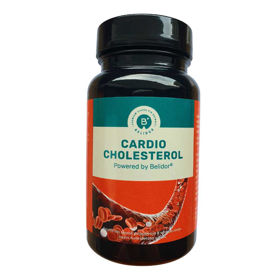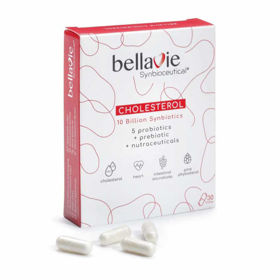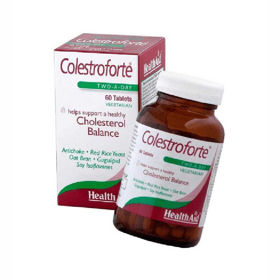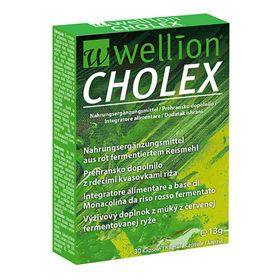Customer question:
Which cholesterol medicines do we know? Anonymous customer's question
Pharmacist's answer:
Medications for cholesterol reduce cholesterol levels in the blood, reducing the risk of cardiovascular diseases such as heart attacks, strokes, and peripheral arterial disease. Different drugs work in different ways, including inhibiting the production of cholesterol in the liver, increasing the removal of cholesterol from the blood, and decreasing cholesterol absorption from the digestive tract.
Below are some common cholesterol medications:
- Statins: Statins are the most commonly prescribed cholesterol-lowering drugs. They work by inhibiting the enzyme HMG-CoA reductase, which is critical to the production of cholesterol in the liver. This reduces the level of LDL cholesterol ("bad" cholesterol) in the blood. Examples of statins include atorvastatin, simvastatin, rosuvastatin, and pravastatin.
- Fibrates: Fibrates are drugs that work by reducing the production of triglycerides in the liver and increasing the removal of triglycerides from the blood. Some fibrates can also raise HDL cholesterol ("good" cholesterol). Examples of fibrates include gemfibrozil, fenofibrate, and other drugs.
- Ezetimibe: Ezetimibe is a medicine that reduces cholesterol absorption from the digestive tract. It inhibits the protein NPC1L1, which is responsible for cholesterol absorption in the intestine. Ezetimibe can be used alone or with statins to lower LDL cholesterol levels further.
- Cholesterol absorption inhibitors: In addition to ezetimibe, other drugs are available that reduce cholesterol absorption from the digestive tract. Examples of these drugs include NPC1L1 inhibitors, such as cholesterol absorption inhibitors (such as colesevelam), and apoprotein inhibitors, such as mipomersen.
- PCSK9 inhibitors: PCSK9 inhibitors are a new class of drugs that work by inhibiting the enzyme PCSK9, which is involved in the metabolism of LDL in the liver. This increases the removal of LDL cholesterol from the blood. Examples of PCSK9 inhibitors are evolocumab and alirocumab.
In addition to these medications, other therapies can be used to lower cholesterol, such as adding omega-3 fatty acids in the form of dietary supplements, dietary supplements containing red rice yeast, and plant sterols and stanol esters. These therapies can be helpful as an adjunct to lifestyle changes and medications, but they are best used as supportive therapy.
Interesting reading: LDL cholesterol
Interesting reading: High cholesterol












 Facebook
Facebook
 Instagram
Instagram
 info@moja-lekarna.com
info@moja-lekarna.com

